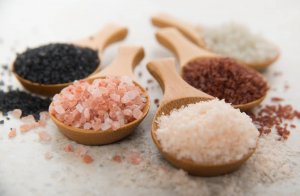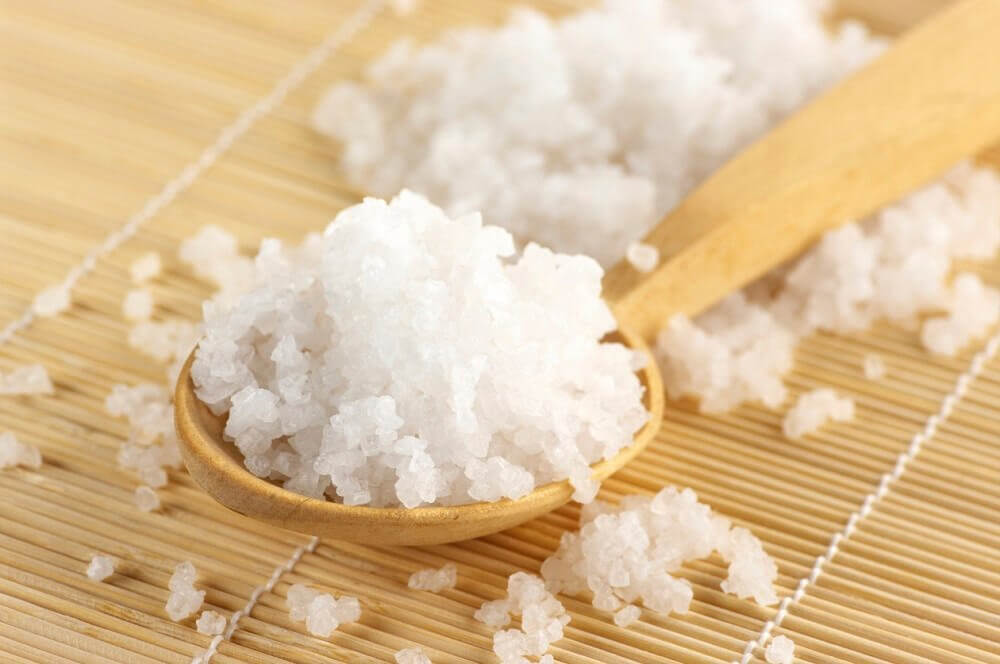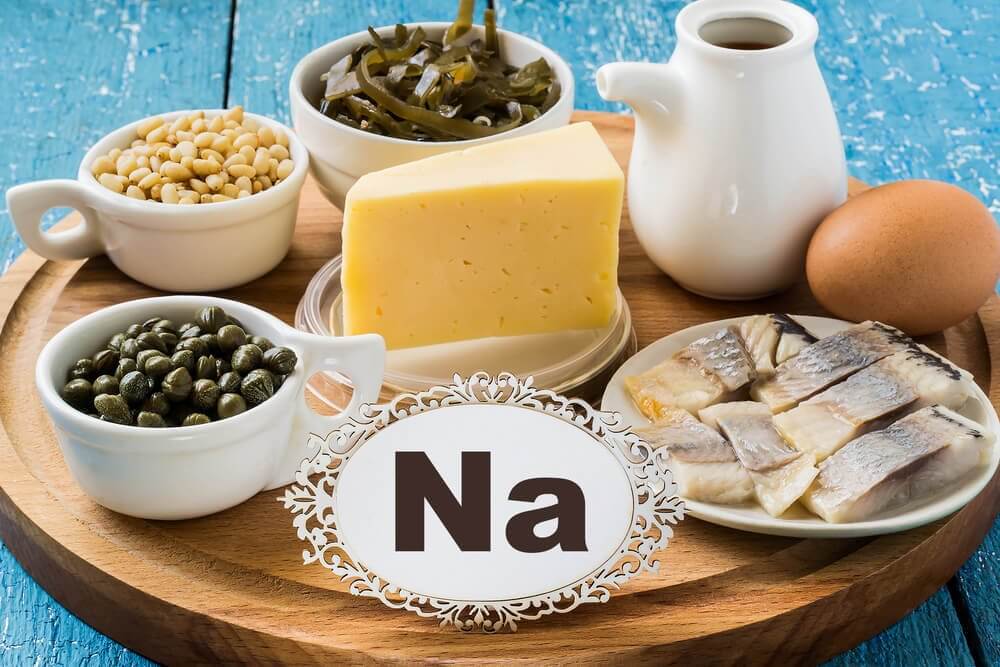Mineral Salts: What They Are and Where to Find Them


Written and verified by the doctor Maricela Jiménez López
On more than one occasion, you’ve probably heard about the importance of mineral salts. They constitute about 4% of our body mass and, along with other nutrients, are decisive for bodily vital functions. What exactly are they? Where to find them?
What are mineral salts?
According to the data published in “Biosphere Project: Biology and Geology Resources”, mineral salts are called inorganic molecules that, in living organisms, appear precipitated, ionized, or associated with any molecule.
- Those that appear as precipitates form hard structures that protect those that possess it. They also perform regulatory functions.
- In the case of ionized minerals, when dissolved in water, they become either positively or negatively charged. This helps in reducing the shock of pH changes, for example.
- Finally, salts that are associated with a molecule are made to perform a specific function that couldn’t do so on its own.
We recommend you read: 5 Benefits of Himalayan Salt Lamps
Why are mineral salts important?

The function of mineral salts is centered on the growth and health of the human body in general. It’s main goal is to make certain chemical process possible and form some structures that your body needs.
According to information from the National Center for Biotechnology Information, mineral salts are responsible for human tissue formation, hormone production and, in addition, they regulate some organic functions.
Among them, the most well-known ones are:
- Sodium
- Calcium
- Iron
- Magnesium
- Potassium
- Phosphorus
Mineral salts, like vitamins, don’t have calories. However, this doesn’t mean you don’t need to watch how much of them you take in. On the contrary, you need to regulate their portions.
Most important mineral salt functions
Below, you’ll see the most important functions of each of these mineral salts and how, according to what was reported by the Food and Agriculture Organization of the United Nations (FAO), this can affect your body.
Sodium

It plays a role in the acid-base balance. Its deficiency can induce fatigue and its excess is related to an increased risk of high blood pressure. This is due to its ability to regulate blood pressure and blood volume.
Calcium
This mineral salt exercises diverse functions in the human body. According to the journal Nutrients, it forms part of your bones and teeth and keeps them healthy. Additionally, its presence is very important to properly clot your blood.
- Not taking in enough calcium can make your hair and nails fragile, as well as cause memory loss and an increased risk of osteoporosis.
Iron

Iron is also necessary for myoglobin production, which is the protein responsible for transporting oxygen to the muscles. It’s similar to hemoglobin, and its function is to store oxygen. It’s mainly in skeletal muscle and heart muscle, which require the most energy.
Magnesium
Magnesium plays a role in nerve transmission and muscle relaxation, maintaining the acid-base balance. The Clinical Kidney Journal reported that some of the consequences of a magnesium deficiency include:
- Irregular heartbeat.
- General fatigue.
- Muscle cramps.
- Anxiety.
Potassium

Potassium is a basic mineral salt for your body, due to the functions that they perform. For example, as Advances in Nutrition states, it regulates the water inside and outside of your cells, along with sodium, which is essential for proper human growth.
The consequences of a potassium deficiency are:
- Dry skin
- A sensation of continuous thirst
- Overall weakness
Also see: Foods that Provide The Most Potassium
Phosphorus
Another publication in Advances in Nutrition states that phosphorus is one of the main components in charge of the formation of bones and teeth. Therefore, it plays an important role, as it determines the way your body uses carbohydrates and fats.
A phosphorus deficiency could make you suffer from:
- Insomnia
- Fatigue
- Nervousness
Foods that are rich in mineral salts
The best way to get mineral salts is through food. Although they’re available in supplement form, you should only take them when necessary.
Calcium
Calcium is mostly found in dairy products like yogurts, cheeses, and milk.
Potassium
Potassium is in fruits. Since potassium is useful for muscle activity, banana is a great help for cramps. You can also find it in legumes, meats, fish, and even in chocolate.
Iron
Offal, shellfish, cocoa, legumes, egg yolks, or cereals in general contain iron.
Magnesium
Magnesium is in some of the foods we already mentioned: it’s present in cereal germ, nuts, legumes, chocolate, and whole wheat bread.
Phosphorus
You can get phosphorus from any lipid, such as meat or fish.
Mineral salts are necessary for proper bodily functioning. Like vitamins, you must take them every day.
Their contribution varies depending on the person who takes them. Analyze your daily diet and, if you don’t eat the foods we recommended here, incorporate them to reap their benefits.
All cited sources were thoroughly reviewed by our team to ensure their quality, reliability, currency, and validity. The bibliography of this article was considered reliable and of academic or scientific accuracy.
- Abbaspour, N., Hurrell, R. & Kelishadi, R. (2014). Review on iron and its importance for human health. Journal of research in medical sciences: the official journal of Isfahan University of Medical Sciences, 19(2), 164–174. https://www.ncbi.nlm.nih.gov/pmc/articles/PMC3999603/
- Albalate, M., Ortiz, P., Izquierdo, E. y Rodríguez, M. (2022). Trastornos del Calcio, Fósforo y Magnesio. Nefrología al día. Sociedad Española de Nefrología. https://www.nefrologiaaldia.org/es-articulo-trastornos-del-calcio-fosforo-magnesio-206
- Albalate, M., Ortiz, P., Izquierdo, E. y Alcázar, R. (2021). Trastornos del Potasio. Hipopotasemia. Hiperpotasemia. Nefrología al día. Sociedad Española de Nefrología. https://www.nefrologiaaldia.org/es-articulo-trastornos-del-potasio-hipopotasemia-hiperpotasemia-383
- Argüelles, J., Núñez, P. y Perillán, C. (2018). Consumo excesivo de sal e hipertensión arterial: Implicaciones para la salud pública. Revista mexicana de trastornos alimentarios, 9(1), 119-128. https://www.scielo.org.mx/scielo.php?pid=S2007-15232018000100119&script=sci_arttext
- Calvo, M. S. & Lamberg-Allardt, C. J. (2015). Phosphorus. Advances in nutrition, 6(6), 860–862. https://www.ncbi.nlm.nih.gov/pmc/articles/PMC4642415/
- Organización de las Naciones Unidas para la Alimentación y la Agricultura. (s.f.). Minerales. https://www.fao.org/3/w0073s/w0073s0e.htm
- Cormick, G. & Belizán, J. M. (2019). Calcium Intake and Health. Nutrients, 11(7), 1606. https://www.ncbi.nlm.nih.gov/pmc/articles/PMC6683260/
- Forrellat, M. (2017). Diagnóstico de la deficiencia de hierro: aspectos esenciales. Revista Cubana de Hematología, Inmunología y Hemoterapia, 33(2), 1-9. http://scielo.sld.cu/scielo.php?script=sci_arttext&pid=S0864-02892017000200004
- Jahnen-Dechent, W. & Ketteler, M. (2012). Magnesium basics. Clinical kidney journal, 5(1), 3-14. https://academic.oup.com/ckj/article/5/Suppl_1/i3/447534?login=false
- Laureano, F. C. S., Fuster, G. O. y Diosdado, M. A. (2000). Homeostasis del calcio, fósforo y magnesio. Medicina integral: Medicina preventiva y asistencial en atención primaria de la salud, 36(7), 261-266. https://www.elsevier.es/es-revista-medicina-integral-63-articulo-homeostasis-del-calcio-fosforo-magnesio-12960
- Santos, S., Vinderola, G., Santos, L. y Araujo, E. (2018). Biodisponibilidad de minerales quelados y no quelados: una revisión sistemática. Revista chilena de nutrición, 45(4), 381-392. https://www.scielo.cl/scielo.php?script=sci_arttext&pid=S0717-75182018000500381
- Sosa, M, & Gómez, M.J. (2021). La suplementación de calcio y vitamina D en el manejo de la osteoporosis. ¿Cuál es la dosis aconsejable de vitamina D? Revista de Osteoporosis y Metabolismo Mineral , 13 (2), 77-83. https://scielo.isciii.es/scielo.php?script=sci_arttext&pid=S1889-836X2021000200006
- Strazzullo, P. & Leclercq, C. (2014). Sodium. Advances in nutrition, 5(2), 188–190. https://www.ncbi.nlm.nih.gov/pmc/articles/PMC3951800/
- Proyecto Biosfera.(s. f.). Las sales minerales. http://recursos.cnice.mec.es/biosfera/alumno/2bachillerato/biomol/contenidos4.htm
- National Center for Biotechnology Information. Diet and Health: Implications for Reducing Chronic Disease Risk. https://www.ncbi.nlm.nih.gov/books/NBK218735/
- Weaver, C. M. (2013). Potassium and health. Advances in nutrition, 4(3), 368–377. https://pubmed.ncbi.nlm.nih.gov/23674806/
This text is provided for informational purposes only and does not replace consultation with a professional. If in doubt, consult your specialist.








